Russia, officially the Russian Federation, is a transcontinental country spanning Eastern Europe and North Asia. It's the world's largest country by area and shares land borders with fourteen nations. With a population exceeding 140 million, Russia is the most populous country in Europe and the ninth-most populous globally. It is highly urbanized, with numerous cities exceeding one million residents. Moscow serves as the capital and largest city, while Saint Petersburg is a major cultural center.
1904: Nobel Prize awards since 1904
Since 1904, Nobel Prizes were awarded to 26 Soviets and Russians in various fields.
1905: Revolution of 1905
In 1905, the Revolution of 1905 was triggered by the failure of the Russo-Japanese War, leading to major reforms.
1906: Russian Constitution of 1906
In 1906, the Russian Constitution of 1906 was implemented, granting freedoms and creating the State Duma.
1914: Russia Enters World War I
In 1914, Russia entered World War I in response to Austria-Hungary's declaration of war on Serbia.
1916: Brusilov Offensive
In 1916, the Brusilov Offensive of the Imperial Russian Army significantly damaged the Austro-Hungarian Army.
1917: Russian Revolution
In 1917, the Russian Revolution occurred, abolishing monarchic rule and replacing it with the Russian SFSR, the world's first constitutionally socialist state.
1917: End of Nicholas II's Reign
Under Nicholas II, in 1917, his reign came to an end.
1918: Proclamation of the Russian SFSR
In 1918, following the Russian Revolution, the Russian SFSR was proclaimed, with the name "Russian" in the title being Rossiyskaya to denote a multinational state.
1918: Russia Declared a Democratic Federal Republic
On January 19, 1918, Russia was declared a democratic federal republic by the Russian Constituent Assembly, but the assembly was dissolved the next day.
1921: Russian Famine Begins
The Russian famine of 1921 began, claiming up to five million victims.
December 1922: Formation of the Soviet Union
On December 30, 1922, the Soviet Union was formed by joining the Russian SFSR with the Byelorussian, Transcaucasian, and Ukrainian republics.
1922: Russian Famine Continues
In 1922, the Russian famine continued, claiming up to five million victims.
1924: Lenin's Death
Following Lenin's death in 1924, a troika was designated to take charge.
1929: Trotsky's Exile
In 1929, Leon Trotsky was exiled from the Soviet Union, and Stalin's idea of Socialism in One Country became the official line.
1930: Russian avant-garde flourished
The Russian avant-garde flourished approximately from 1890 to 1930, producing globally influential artists.
1932: Soviet Famine Begins
In 1932, the Soviet famine began, leading to millions of deaths in the Russian SFSR.
1933: Soviet Famine Continues
In 1933, the Soviet famine continued, leading to millions of deaths.
September 1939: Soviet Union Enters World War II
On September 17, 1939, the Soviet Union entered World War II with its invasion of Poland.
June 1941: Germany Invades the Soviet Union
On June 22, 1941, Germany invaded the Soviet Union, opening the Eastern Front.
1941: Siege of Leningrad Begins
In 1941, the Siege of Leningrad began, resulting in starvation and many deaths.
1941: Start of the Great Patriotic War
In 1941, the period of World War II known as the Great Patriotic War began in Russia.
1942: Battle of Stalingrad
In the winter of 1942, the Germans were dealt a major defeat at the Battle of Stalingrad.
1943: Battle of Kursk
In the summer of 1943, the Germans suffered a major defeat at the Battle of Kursk.
1944: Soviet Forces Advance Through Eastern Europe
In 1944, Soviet forces steamrolled through Eastern and Central Europe.
May 1945: Capture of Berlin
In May 1945, Soviet forces captured Berlin.
August 1945: Red Army Invades Manchuria
In August 1945, the Red Army invaded Manchuria and ousted the Japanese.
1945: End of World War II
By 1945, the Soviet Union was considered one of the Big Four Allied powers in World War II.
1953: Death of Stalin
In 1953, after Stalin's death, Nikita Khrushchev denounced Stalin and launched the policy of de-Stalinization.
1954: First nuclear power plant
In 1954, Russia built the world's first nuclear power plant, pioneering civilian nuclear power.
1957: Laika orbits the Earth
In 1957, Laika, a Soviet space dog, became the first animal to orbit the Earth, aboard Sputnik 2.
1957: Launch of Sputnik 1
In 1957, the Soviet Union launched the world's first artificial satellite, Sputnik 1, marking the start of the Space Age.
1958: Battleship Potemkin named greatest film
In 1958, the film Battleship Potemkin was named the greatest film of all time at the Brussels World's Fair.
1960: Soviet Union wins Euro 1960
In 1960, the Soviet Union national football team became the first European champions by winning Euro 1960.
April 1961: First Human in Space
On April 12, 1961, Russian cosmonaut Yuri Gagarin became the first human to orbit the Earth aboard the Vostok 1 spacecraft.
1961: Sergey Bondarchuk directed War and Peace
From 1961 to 1968, Sergey Bondarchuk directed the Oscar-winning film adaptation of Leo Tolstoy's War and Peace. It was the most expensive film made in the Soviet Union at that time.
1961: First human trip into space by Yuri Gagarin
In 1961, Yuri Gagarin successfully made the first human trip into space.
1963: Valentina Tereshkova first woman in space
In 1963, Valentina Tereshkova became the first and youngest woman in space, flying a solo mission on Vostok 6.
1964: Ousting of Khrushchev
Following the ousting of Khrushchev in 1964, another period of collective rule ensued until Leonid Brezhnev became the leader.
1965: First human spacewalk
In 1965, Alexei Leonov became the first human to conduct a spacewalk, exiting the space capsule during Voskhod 2.
1965: Kosygin Reform
In 1965, the Kosygin reform aimed for partial decentralisation of the Soviet economy.
1966: Luna 9 lands on the Moon
In 1966, Luna 9 became the first spacecraft to achieve a survivable landing on the Moon.
1968: Zond 5 brings Earthlings to circumnavigate the Moon
In 1968, Zond 5 brought the first Earthlings (two tortoises and other life forms) to circumnavigate the Moon.
1969: White Sun of the Desert released
In 1969, Vladimir Motyl's White Sun of the Desert was released; the film is traditionally watched by cosmonauts before any trip into space.
1970: Venera 7 lands on Venus
In 1970, Venera 7 became the first spacecraft to land on another planet, Venus.
1979: Soviet Invasion of Afghanistan
In 1979, Soviet forces invaded Afghanistan after a communist-led revolution.
1985: Gorbachev Introduces Reforms
From 1985 onwards, Mikhail Gorbachev introduced the policies of glasnost (openness) and perestroika (restructuring).
May 1988: Soviet Withdrawal from Afghanistan
In May 1988, the Soviets started to withdraw from Afghanistan.
1988: Soviet Union reaches Euro 1988 finals
In 1988, the Soviet Union national football team reached the finals of Euro 1988.
June 1991: Boris Yeltsin Elected President
In June 1991, Boris Yeltsin became the first directly elected President in Russian history when he was elected President of the Russian SFSR.
August 1991: Coup Attempt
In August 1991, a coup d'état attempt by members of Gorbachev's government led to the end of the Communist Party of the Soviet Union.
December 1991: Dissolution of the Soviet Union
On December 25, 1991, following the dissolution of the Soviet Union, along with contemporary Russia, fourteen other post-Soviet states emerged.
1991: Dissolution of the Soviet Union
In 1991, the Russian SFSR emerged from the dissolution of the Soviet Union as the Russian Federation.
1991: Soviet Economy in Crisis
Prior to 1991, the Soviet economy was the world's second-largest, but during its final years, it went into a crisis.
1992: Price Controls Eliminated
In 1992, most consumer price controls were eliminated, causing extreme inflation and significantly devaluing the rouble.
1993: Population peaked at over 148 million
In 1993, Russia's population peaked at over 148 million.
1993: Constitutional Crisis
In late 1993, tensions between Yeltsin and the Russian parliament culminated in a constitutional crisis which ended violently through military force.
1998: Russian Financial Crisis
In 1998, high budget deficits caused the Russian financial crisis, which resulted in a further GDP decline.
December 1999: Yeltsin Resigns, Putin Appointed
On December 31, 1999, President Yeltsin unexpectedly resigned, handing the post to Vladimir Putin.
2000: Putin Wins Presidential Election
In 2000, Putin won the presidential election and defeated the Chechen insurgency in the Second Chechen War.
2000: Federal districts established
In 2000, Vladimir Putin established the federal districts of Russia to enhance central government control of the federal subjects.
2000: Incarceration rate fall
Since 2000, the number of incarcerated persons has fallen steadily, by 59%.
2002: Grigori Perelman offered the Clay Millennium Prize Problems Award
In 2002, Grigori Perelman was offered the first ever Clay Millennium Prize Problems Award for his final proof of the Poincaré conjecture.
2004: Putin won a second presidential term
In 2004, Vladimir Putin secured his second presidential term. This period saw significant improvements in the Russian economy and living standards, driven by high oil prices and increased foreign investment.
2004: Freedom House ranked Russia as "not free"
Since 2004, Freedom House has consistently ranked Russia as "not free" in its annual Freedom in the World survey.
2006: Grigori Perelman awarded the Fields Medal
In 2006, Grigori Perelman was awarded the Fields Medal.
2007: Russian basketball team wins EuroBasket 2007
In 2007, the Russian national basketball team won the EuroBasket 2007.
August 2008: Russo-Georgian War
During 1–12 August 2008, the Russo-Georgian War took place, resulting in Russia recognising two separatist states in the territories it occupies in Georgia. This was the first European war of the 21st century.
2008: War with Georgia
In 2008, Russia was militarily involved in a war with Georgia.
2008: Putin became Prime Minister
In 2008, Vladimir Putin transitioned to the role of Prime Minister, while Dmitry Medvedev was elected President. This arrangement, described as a "tandemocracy," allowed Putin to maintain power despite presidential term limits.
2009: Annual population growth recorded for the first time in fifteen years
In 2009, Russia recorded annual population growth for the first time in fifteen years.
2010: Russian Census of 2010 on language speakers
According to the Russian Census of 2010, 137.5 million people across the country spoke Russian, 3.1 million spoke Tatar, and 1.1 million spoke Ukrainian.
2010: The Arena Atlas an adjunct to the 2010 census
In 2012, the research organisation Sreda, published the Arena Atlas, an adjunct to the 2010 census
2010: Census shows 81% ethnic Russians
In the 2010 census, roughly 81% of the population in Russia were ethnic Russians.
2011: Final flight of the Space Shuttle program
In 2011, with the final flight of the Space Shuttle program, Soyuz rockets became the only launch vehicles capable of transporting astronauts to the ISS until 2020.
2011: Russia ranked as an "authoritarian regime" by the Economist Intelligence Unit
Since 2011, the Economist Intelligence Unit has classified Russia as an "authoritarian regime" in its Democracy Index.
2012: Putin won the presidential election
In 2012, Vladimir Putin won the presidential election, which sparked the "Snow Revolution" protests.
2012: Sreda published Arena Atlas
In 2012, the research organization Sreda, in cooperation with the Ministry of Justice, published the Arena Atlas detailing religious populations and nationalities of Russia.
2013: Anti-LGBTQ law banning "gay propaganda" passed
In 2013, Russia introduced restrictions on LGBTQ rights, passing an anti-LGBTQ law banning "gay propaganda."
2014: Russia was expelled from the G8
In 2014, Russia was expelled from the G8.
2014: War with Ukraine and Annexation of Crimea
In 2014, Russia was militarily involved in a war with Ukraine, which included the internationally unrecognised annexation of Crimea.
2014: Sochi hosts Winter Olympics and Paralympics
In 2014, the Winter Olympics and the Winter Paralympics were hosted in Sochi.
2014: Russia annexed Crimea
In early 2014, Russia annexed Crimea following a disputed referendum held under Russian occupation after a pro-Western revolution in Ukraine. This annexation triggered an insurgency in the Donbas region of Ukraine, supported by Russian military intervention.
2015: Joined the Paris Agreement
In 2015, Russia joined the Paris Agreement on climate change.
2017: Russia hosts FIFA Confederations Cup
In 2017, Russia was the host nation for the 2017 FIFA Confederations Cup.
2017: Jehovah's Witnesses outlawed
In 2017, the Jehovah's Witnesses were outlawed in Russia, facing persecution after being declared an "extremist" and "nontraditional" faith.
2018: Putin re-elected for his second consecutive term
Amidst nationwide protests against corruption, Vladimir Putin was re-elected for his second consecutive term in the 2018 presidential election.
2018: Sixth-largest fishing industry
In 2018, Russia maintained the world's sixth-largest fishing industry, capturing nearly 5 million tons of fish.
2018: Russia's shadow economy
In 2018, Russia's shadow economy was estimated to be about 44% of the total GDP.
2019: Third-largest immigrant population in the world
As of 2019, Russia has the third-largest immigrant population in the world, with over 12 million immigrants.
2019: Russia's road network
As of 2019, Russia has the world's fifth-largest road network, with over 1.5 million km of roads.
2019: Forest Landscape Integrity Index mean score
In 2019, Russia had a Forest Landscape Integrity Index mean score of 9.02, ranking 10th out of 172 countries.
2019: Ratified the Paris Agreement
In 2019, Russia ratified the Paris Agreement on climate change.
2019: Spent about 1% of its GDP on research and development
In 2019, Russia spent about 1% of its GDP on research and development.
2020: Immigrants from post-Soviet states
As of 2020, the vast majority of immigrants in Russia hail from post-Soviet states, with about half of them being from Ukraine and Kazakhstan.
2020: Ranked tenth worldwide in the number of scientific publications
In 2020, Russia ranked tenth worldwide in the number of scientific publications, with roughly 1.3 million papers.
2020: Constitutional ban on same-sex marriage legalized
In 2020, the Russian parliament legalized a constitutional ban on same-sex marriage.
2020: Largest peacetime decline due to COVID-19 pandemic
Since 2020, excessive deaths from the COVID-19 pandemic resulted in the largest peacetime decline in Russia's history.
2020: SpaceX's first crewed mission
Until SpaceX's first crewed mission in 2020, Soyuz rockets were the only launch vehicles capable of transporting astronauts to the ISS following the final flight of the Space Shuttle program in 2011.
2021: Russia's intentional homicide rate
As of 2021, Russia's intentional homicide rate stood at 6.8 per 100,000 people.
2021: Healthcare expenditure
In 2021, Russia spent 7.39% of its GDP on healthcare, which is notably lower than other developed nations.
2021: Russian LGBT Network designated as a "foreign agent"
In 2021, the Ministry of Justice designated the LGBTQ rights group Russian LGBT Network as a "foreign agent".
2021: Population in 2021 census
In the 2021 census, Russia's population was 147.2 million.
2021: Ranked 45th in the Global Innovation Index
Russia ranked 45th in the Global Innovation Index in 2021, before dropping to 60th in 2024.
2022: Fifth-largest hydroelectric producer
As of 2022, Russia is the fifth-largest hydroelectric producer, with hydroelectric power contributing almost a fifth to the total energy generation.
2022: Life expectancy
As of 2022, the overall life expectancy in Russia at birth is 73 years (68 years for males and 78 years for females).
2022: Abuses during the 2022 invasion of Ukraine
During the 2022 invasion of Ukraine, Russia established filtration camps where many Ukrainians were subjected to abuses and forcibly sent to Russia.
2022: Relations with North Korea developed
Following its invasion of Ukraine in 2022, Russia significantly developed its relations with North Korea, with increased defence co-operation.
2022: Sanctions following the 2022 Russian invasion of Ukraine
Following the 2022 Russian invasion of Ukraine, the country faced extensive sanctions which have the aim of isolating the Russian economy from the Western financial system.
2022: Demographic crisis deepened following the invasion of Ukraine
Following the Russian invasion of Ukraine in 2022, the demographic crisis has deepened, owing to high military fatalities and renewed emigration.
2022: Russia was expelled from the Council of Europe
In 2022, Russia was expelled from the Council of Europe.
2022: Annexation of Ukrainian Regions
In 2022, during the ongoing invasion of Ukraine, Russia annexed four other regions of Ukrainian territory, which was internationally unrecognised.
2022: Amendments made to the 2013 anti-LGBTQ law
In 2022, further amendments were made to the 2013 anti-LGBTQ law.
2022: Termination of Formula One Russian Grand Prix
In 2022, the annual Formula One Russian Grand Prix, held at the Sochi Autodrom, was terminated following the Russian invasion of Ukraine.
2022: Penal military units deployed in Russo-Ukrainian War
Since 2022, penal military units have been deployed as storm troops during the ongoing Russo-Ukrainian War.
June 2023: Wagner Group declared a rebellion
In June 2023, the Wagner Group, a private military contractor, initiated a rebellion against the Russian Ministry of Defence, capturing Rostov-on-Don before marching on Moscow. The rebellion was later called off after negotiations, and the leader, Yevgeny Prigozhin, was killed in a plane crash.
August 2023: Luna 25 launched
In August 2023, Luna 25 launched, marking the first of the Luna-Glob Moon exploration program.
2023: Second-largest producer and third-largest exporter of natural gas
As of 2023, Russia is the second-largest producer and the third-largest exporter of natural gas.
2023: World's third-largest energy producer
As of 2023, Russia is the world's third-largest energy producer, with fossil fuels accounting for a significant portion of its energy production and consumption.
2023: Russia's military expenditure
As of 2023, Russia maintains the world's third-highest military expenditure, spending $109 billion, corresponding to about 5.9% of its GDP.
2023: Fourth-largest greenhouse gas emissions in the world
As of 2023, Russia's greenhouse gas emissions are the fourth-largest in the world.
2023: Agriculture, forestry and fishing contributes about 3.3% of the country's total GDP
As of 2023, agriculture, forestry and fishing contributes about 3.3% of the country's total GDP.
2023: Service sector accounts for roughly 57% of total GDP
As of 2023, the service sector accounts for roughly 57% of Russia's total GDP.
2023: Illegal arms trade market
In 2023, Russia had the world's second-largest illegal arms trade market, after the United States.
2023: Bill banning gender reassignment surgery passed
In 2023, the Russian parliament passed a bill banning gender reassignment surgery for transgender people and the Supreme Court of Russia banned the international LGBTQ movement as "extremist", outlawing it in the country.
2024: Russia's diplomatic network
As of 2024, Russia has the world's sixth-largest diplomatic network and is a permanent member of the United Nations Security Council.
2024: Corruption Perceptions Index ranking
As of 2024, Russia is the lowest rated European country in Transparency International's annual Corruption Perceptions Index, ranking 154th out of the 180 countries listed.
2024: Total fertility rate
As of 2024, the total fertility rate across Russia is estimated to be 1.41 children born per woman.
2024: Democracy Index ranking for Russia
In 2024, Russia was ranked 150th out of 167 countries in the Economist Intelligence Unit's Democracy Index.
2024: Oil and gas sector accounted for 30% of federal budget revenues
In 2024, Russia's large oil and gas sector accounted for 30% of its federal budget revenues, down from 50% in the mid-2010s, indicating economic diversification.
2024: Putin won his third consecutive term
In 2024, Vladimir Putin secured his third consecutive term in the presidential election, winning 88% of the vote.
2024: First convictions from the latter ruling
In 2024, the Supreme Court issued the first convictions from the latter ruling.
2024: Ranked 60th in the Global Innovation Index
Russia ranked 60th in the Global Innovation Index in 2024, down from 45th in 2021.
2025: Russian Armed Forces Personnel
As of 2025, the Russian military has 1.1 million active-duty personnel, which is the world's fifth-largest, and about 1.5 million reserve personnel.
2025: Estimated population
In 2025, Russia had an estimated population of 146.0 million (143.6 million excluding Crimea and Sevastopol).
Mentioned in this timeline

Basketball is a team sport played on a rectangular court...

Vladimir Vladimirovich Putin is a Russian politician and former intelligence...
Ukraine is a large country in Eastern Europe second in...
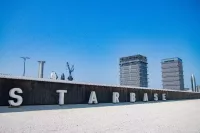
SpaceX founded in is a private American aerospace manufacturer and...
The Union of Soviet Socialist Republics USSR existed from to...

Football is a family of team sports primarily involving kicking...
Trending
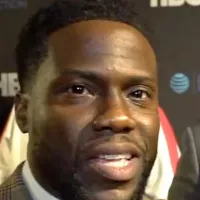
9 months ago Kevin Hart to Host the 2025 BET Awards: A Comedic Takeover!
7 months ago Derik Queen, Pelicans' Rookie, Out 3 Months After Wrist Surgery: Re-evaluated in October
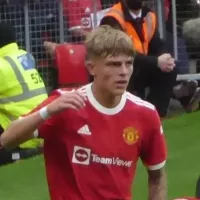
10 months ago Brandon Williams' Injury Fuels Mavericks' Playoff Fears; Comes off Bench in Game
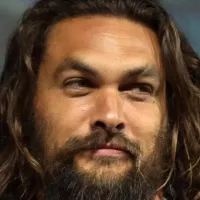
2 months ago Jason Momoa as Lobo: First Look Revealed in Supergirl Concept Art and Trailer
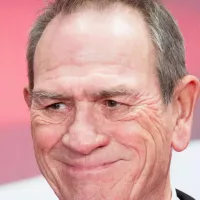
11 months ago Tommy Lee Jones' Western streams free; Downey Jr. slams Harrison Ford sequel.

Yuki Kawamura is a Japanese professional basketball player currently playing for the Chicago Bulls in the NBA under a two-way...
Popular

Thomas Douglas Homan is an American law enforcement officer who...

William Franklin Graham III commonly known as Franklin Graham is...

Jupiter is the fifth and largest planet from the Sun...

XXXTentacion born Jahseh Dwayne Ricardo Onfroy was a controversial yet...

Kristi Noem is an American politician who has served as...

Melania Trump a Slovenian-American former model has served as First...